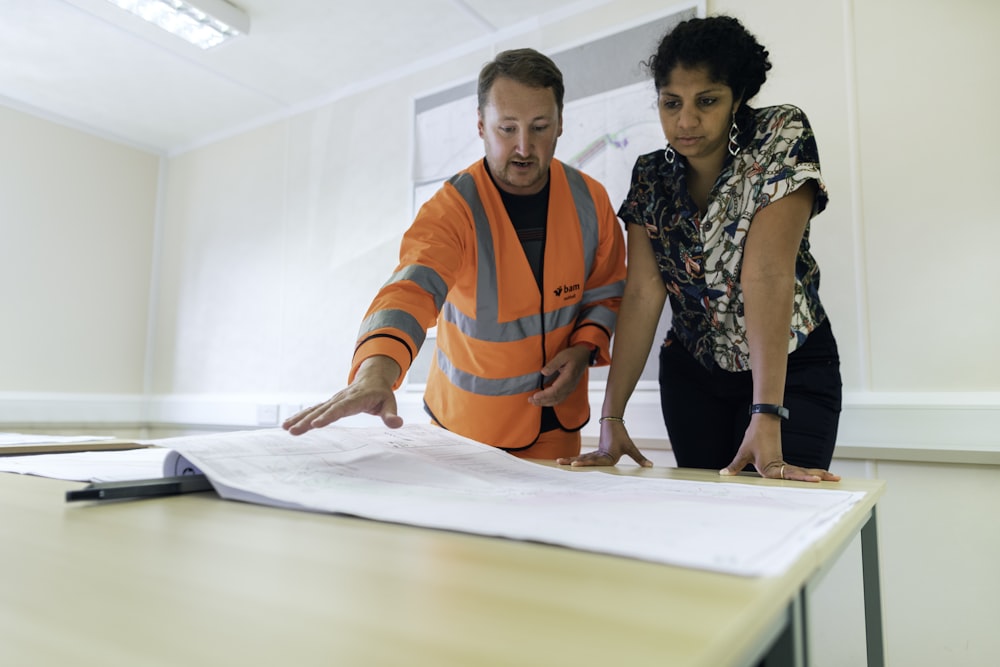How Thinking Like An Engineer Can Solve Our Economic Problems
Image Source: Unsplash
If there is one thing everyone wants, it’s economic vision. But that’s difficult to attain.
All the best economists admit that they don’t know what’s going to happen next. Even after their long, exhaustive years of academic study, they all graduated with blindfolds on. And yet, here we are asking economists to help us solve our biggest problems.
So, how do you develop X-ray economic vision? The same way engineers are able to predict the future for bridges, buildings and just about anything else they build. They use science and apply it to make predictions about how things will behave in the future – and they do so to an incredible degree of accuracy and dependability.
Imagine if our economy could be run the same way. Imagine if it was possible to “see” the economy like an engineer sees the product being designed. Imagine the insights one could get into what is going to happen next.
Obviously, you don’t want to think like an economist if you want to have relevant insight into what the economy will do. So, start thinking like an engineer. An engineer looks at the inputs into a system to determine the output. The mistake economists make is they start with the output and try to figure out what the output will do next, with little luck.
Believe it or not, economists look at human behavior, which is the output of the economy, for their answers.
Starting point: The banking system
An engineer always starts with the input into a system, which in the economy is the monetary policy of the banking system. Monetary policy is the real “engineerable” input into the economy and society. So, the way to see through all the nonsense coming from the wonkish economists is to start with the banking system and what it's doing to our world, society and humanity.
This can quickly become a profit-making tool. Because as it turns out, the banking system’s monetary policy is in broad daylight and hasn’t changed significantly in over a century. In short, the banking system needs to keep the economy growing by balancing interest rates, and now by quantitative easing – a monetary policy used by central banks to increase the money supply and spur lending and investment. But what we need is a better option that is both capitalist and small government while eliminating the need for social safety nets. We need a system that unites us rather than divides us.
The best way to build consensus in how to operate our economic system is to destroy the arguments of both parties and unite them in a singular pursuit, which in a nutshell is to replace the way we currently think about and use money (which forces people into a life of dependence on government safety nets) and follow a more natural system that allows for dignity, liberty and growth.
From an engineering perspective, I can envision ways we can fix many of our problems and have a future that looks like this:
- Where technology increasingly contributes to the common good, for poor people and rich people and all the people in between;
- Where supermarkets aren’t throwing out 60% of their produce while people just up the street from the supermarket are going hungry;
- Where 5 million children don’t die a poverty-related death on an annual basis;
- Where the bottom 25% of the population no longer has absolutely nothing in their savings – and instead, they have the means to continue saving as the years go by;
- A future where savings accounts yield a handsome return and not the insulting near-zero interest rates of modern times
- A future where sustainability is possible for nature, humanity and wildlife
- A future where jobs are not precious, but instead ubiquitous, and not thought of as a rare commodity and manipulated to control wages.
The bottom line is, if we change how money flows into our reality, then we will fundamentally change reality.
Surprisingly, the biggest obstacle is not the government or bureaucracy. The main problem lies in what humanity collectively believes money to be. In order to solve the world’s problems, we’re going to have to dismantle our definition of money and how we believe it’s supposed to work.





REally, the way good engineers operate is to first use science to understand how something works, and then observe the difference between how it is working and how it should be working. That is how engineers solve problems. Understanding how things work is a big part of the science. On some occasions engineers discover that a lack of understanding has resulted in errors that have caused damage and failure. That is often traced to wanting results that are not possible. Sometimes engineers can fix the problem, other times the bridge collapses into the river before any fix can be done. (Don't look now, but get off of the bridge.)
Good thoughts... you definitely highlight the ideal worth striving for, but how exactly do we get there? You don't actually offer a concrete plan. What are the actual steps to take to achieve this goal?
The first step is to create awareness through my books. My latest book, The Big Solution is entertaining and can be understood by anyone.
The next step is to build a movement, my website www.optimizingAmerica.com has videos and ways to contribute.
There are forums and groups you can join.
So what your saying is this article wasn't really written to offer any value to readers, but rather is just a way to promote yourself and your products. Pass.
You would have done far better impressing us with your knowledge, so that we'd want to learn more about you and your products. That's what other authors here do.
Interesting, thanks for sharing.